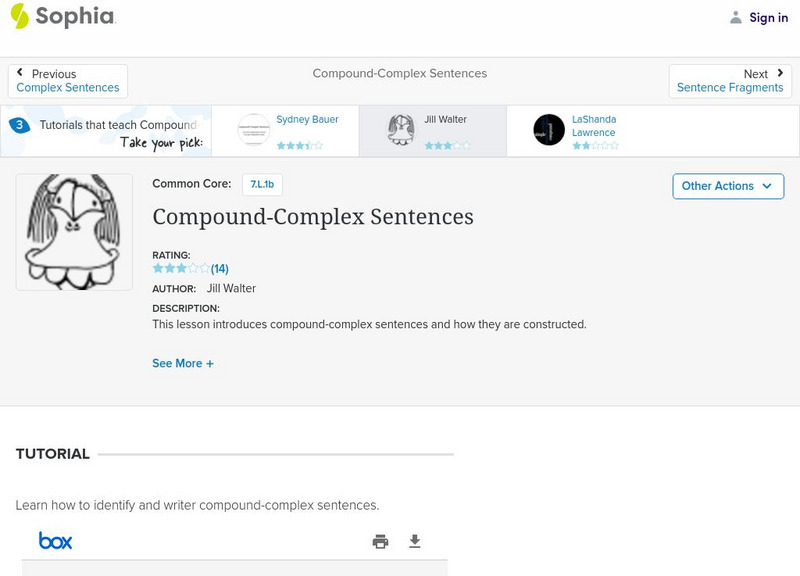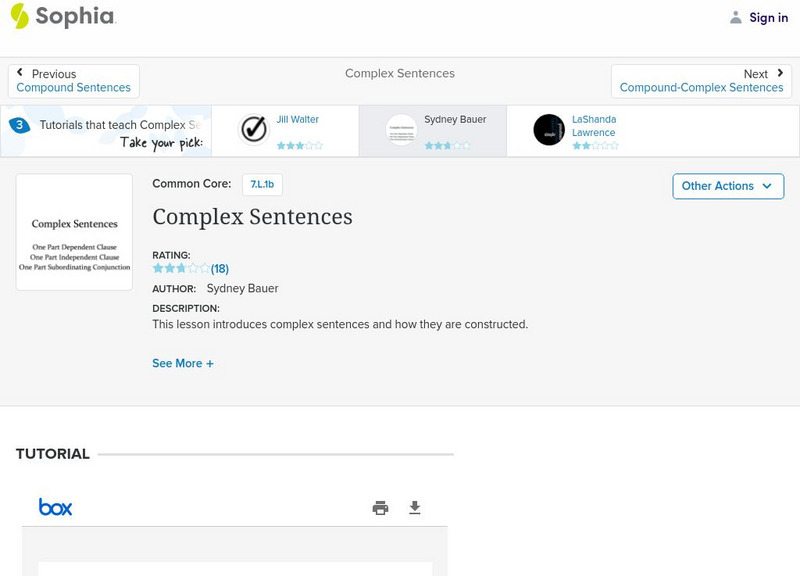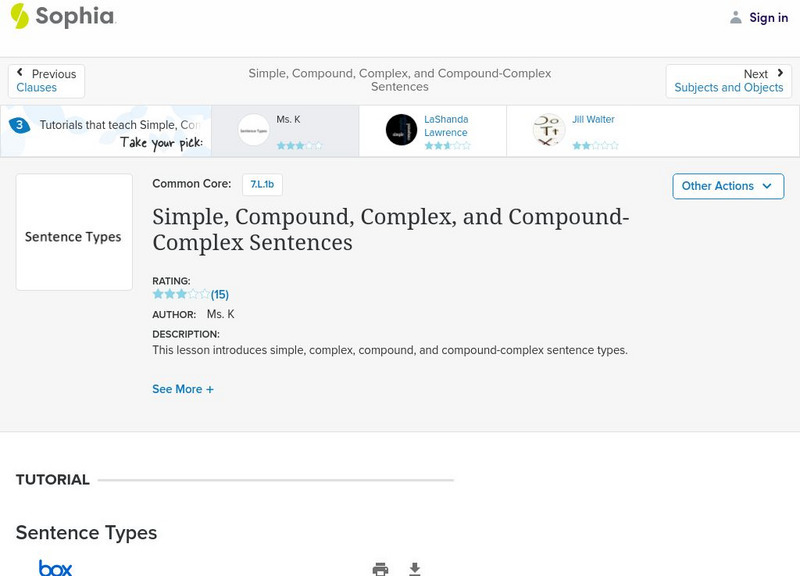Curated OER
Conjunctions
Students examine the role of conjunctions in the English language. They discuss how conjunctions are used, observe a teacher demonstration, and complete various worksheets related to conjunctions.
Curated OER
Paul Revere's Ride
Third graders read and discuss the selection "Paul Revere's Ride" (included with the lesson plan). Students imagine they live in one of the villages that Paul Revere stopped. They are awakened by his knock on the door. Students write an...
Curated OER
Student Based Oral Reading & Presentation Study of Shakespeare's 12th Night
Students develop an appreciation for Shakespeare by researching the Elizabethan period and situations in the Twelfth Night. In this Shakespeare play lesson, students complete a 52 page packet to learn about the period of time and...
Curated OER
Clauses
Students understand that there are different types of clauses and define the differences. In this clauses lesson, students complete activities to practice works with different types of clauses.
Curated OER
The Black Snowman
Sixth graders write a paper. For this writing and retelling lesson, 6th graders read the book The Black Snowman and answer comprehension questions. Students learn how to write good paragraphs and how to retell a story. Students write a 3...
Curated OER
Why the Whales Came
In this Why the Whales Came worksheet, students answer questions about each chapter in the story for twelve chapters. Students answer five to ten questions about plot per chapter and complete a writing assignment for each chapter.
Curated OER
Heading West
Young scholars study the concept of the westward expansion. In this exploration of the western U.S. lesson, students participate in different activities that explain economic hardships, jobs, and land opportunities. Young scholars...
Curated OER
Asking For Help At Local Agencies
Students identify and explore the ways in which businesses, government, and community organizations provided helpful information. A list of local agencies is comprised and students list questions which are appropriate to ask at these...
Curated OER
Navigating The Legal System
Students identify personal rights allowed under the law in the United States. An exploration of the legal process leads students to describe how the American legal system works. This lesson is intended for students acquiring English.
Curated OER
Writing the Position Paper
Students write position papers on a form of alternative energy production. They use several class periods to develop and write their paper and them participate in an extensive peer review session.
Curated OER
First Class Mail
Young scholars read The Witch of Blackbird Pond, and write a friendly letter to Elizabeth George Speare, the author, discussing their points of interest in the novel with her.
Curated OER
WRITING AN ARTICLE FOR A CHILDREN'S MAGAZINE
Middle schoolers engage in the writing of a magazine article. They focus upon the reading of a children's fiction book and create an informative narrative. They create main ideas and supporting details for the article. The supporting of...
Curated OER
A Formal Analysis of Science Fiction
Young scholars write a five paragraph expository theme. They explain in their theme how the story they read qualifies as science fiction. Students write using all the conventions of English correctly.
Curated OER
Writing a Legal Brief
Twelfth graders work together to write appeals for their side in a famous case. Using a format, they write a legal brief and incorporate the legal, scientific and environmental information needed to make a strong case. They share their...
Curated OER
Plants
Sixth graders examine how plants collect water and breathe. In groups, they participate in a variety of activities in which they discover how plants operate in terrariums. To end the lesson, they discuss why plants are important to the...
Curated OER
War In Iraq Comparison
Fifth graders use the internet to research the Silver Star given to those who served in Operation Iraqi Freedom. Using the information, they write a short report on one of the recipients of the Silver Star. In groups, they visit a...
Curated OER
Ingestion
In this ingestion worksheet, 9th graders fill in the blank about ingestion. Students relate the role of saliva, teeth, and the esophagus to their importance in ingestion.
Sophia Learning
Sophia: Compound Complex Sentences
This slideshow lesson focuses on compound complex sentences. It explains what they are including the requirements, how they are put together, how to punctuate them, and provides examples showing the various sentence structures.
Khan Academy
Khan Academy: Complex and Compound Complex Sentences
Complex sentences are simple sentences with dependent or subordinate clauses added to them. Compound-complex sentences are compound sentences with dependent or subordinate clauses added to them.
Khan Academy
Khan Academy: Complex and Compound Complex Sentences: Quiz
Choose the sentence that correctly combines two statements in order to create a complex or compound-complex sentence in this seven-question quiz.
Sophia Learning
Sophia: Compound Complex Sentences: Lesson 1
This lesson introduces compound-complex sentences and how they are constructed. It is 1 of 4 in the series titled "Compound-Complex Sentences."
Sophia Learning
Sophia: Complex Sentences
This slideshow lesson focuses on complex sentences; it explains what makes up a complex sentence: independent clause, dependent clause, and a subordinate conjunction. It discusses placement, order, and how to punctuate them accordingly.
Better Lesson
Better Lesson: Speaking, Listening and Writing Compound Contrasting Sentences
Students will be answering text-dependent questions in which they will have to describe the differences between the different characters, settings, and major events in our stories using complex contrasting sentences. The students will...
Sophia Learning
Sophia: Simple, Compound, Complex, and Compound Complex Sentences: Lesson 1
This slideshow lesson defines and provides examples for each of the types of sentences: simple, complex, compound, and compound-complex. It is 1 of 3 in the series titled "Simple, Compound, Complex, and Compound-Complex Sentences."























